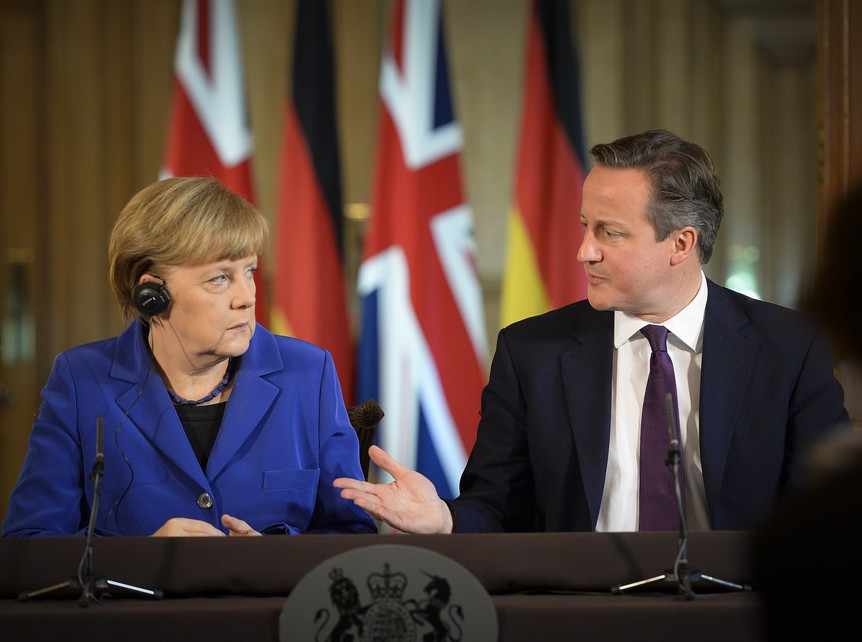David Cameron has concluded a one week EU whistle-stop tour in his bid to reform the 28-nation bloc and win back powers from Brussels. Coming after a fresh win in last month’s general election, the British Prime Minister set out on a charm offensive to renegotiate Britain’s relationship with the Union ahead of the 2017 in-out referendum. His handpicked stops were few but telling as to whose support David Cameron is seeking.
The Prime Minister kicked off a week of talks by meeting with EU Commission chief Jean-Claude Juncker on 25 May. David Cameron did not miss the opportunity to “underline that the British people are not happy with the status quo and believe that the EU needs to change in order to better address their concerns.” In response, Junker told Cameron that “he wanted to find a fair deal for the UK and would seek to help.”
The chat and the pork belly dinner that followed came before David Cameron’s rendezvous with the most powerful woman in the world. “Where there’s a will, there’s a way,” Angela Merkel told the press as she was exiting the meeting with her British counterpart. Her willingness to play a “constructive” role and help broker a deal that would enable Britain to remain in the bloc is part, as some pundits suggest, of a bigger picture. The Chancellor might fear that a British exit would leave a fragmented and meek Europe in the face of Chinese economic ambitions and Russian bullying. Angela Merkel wants to look beyond the British-EU wrangle. To the German leader, the benefits of preserving the Union intact outweigh even a UK opt-out from an “ever closer,” and even federal, Europe.
Cameron jetted off to Paris where he was greeted by the French President, François Hollande. Laurent Fabius, the French Foreign Minister, gave a stark warning vis-à-vis the British undertaking, saying that France would block any move that would grant the UK a special status in the European Union. Fabius even went so far as to say that Cameron is undertaking a “dangerous process,” insisting that special status for the UK would fail to receive any backing from Paris.
In The Hague, David Cameron met a more reform-minded counterpart. The Dutch Prime Minister, Mark Rutte, stands as an ally in supporting the need to devolve power away from the Union. This like-mindedness surprised no one, as the Netherlands have always been UK-friendly in their push for more competitiveness and less red tape from Brussels.
The appetite for change ground to a halt with David Cameron’s arrival in Poland. Prime Minister Ewa Kopacz made it clear that her country is against scrapping welfare benefits for EU workers and opposes any plan that would discriminate against Polish people working legally in the UK.
Cameron’s shuttle-diplomacy follows the Conservative Party’s victory in the election and his campaign promise to hold a referendum on UK membership in the European Union before the end of 2017. Prime Minister Cameron said that, if he achieves the reforms demanded, he will campaign for the UK to stay within the EU. If not, we might see Cameron, together with his Conservative Party, asking the British people to vote for the UK’s exit, or “Brexit”.


